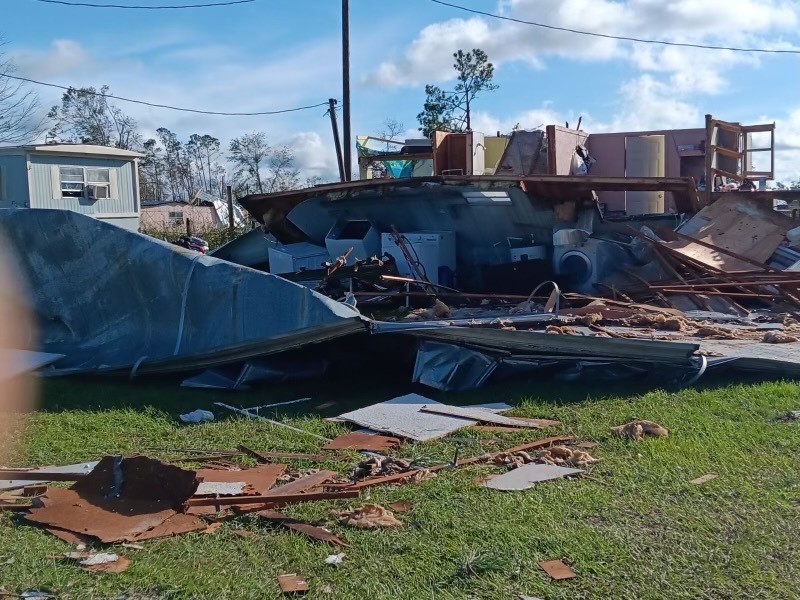After Hurricane Helene, faith groups ramp up disaster relief

Wreckage from Hurricane Helene near Send Relief's disaster recovery center in Valdosta, Georgia. (Photo by Jay Watkins/Send Relief)
Even before Hurricane Helene made landfall in the United States, near Tallahassee, Florida, on September 26, faith-based disaster groups were on the move.
Disaster relief staff from the Southern Baptist Convention shipped food and other essentials to Valdosta, Georgia, where Send Relief, a Southern Baptist humanitarian group, runs a ministry center. From there, supplies could be sent to the Gulf Coast and other areas affected by the devastating storm.
Coming ashore as a Category 4 hurricane, Helene killed 227 people at last count and left millions without power in at least eight states across the Southeast US, according to the Associated Press. As the storm headed north, SBC officials and leaders from other faith-based groups were holding conference calls and planning their relief efforts.





